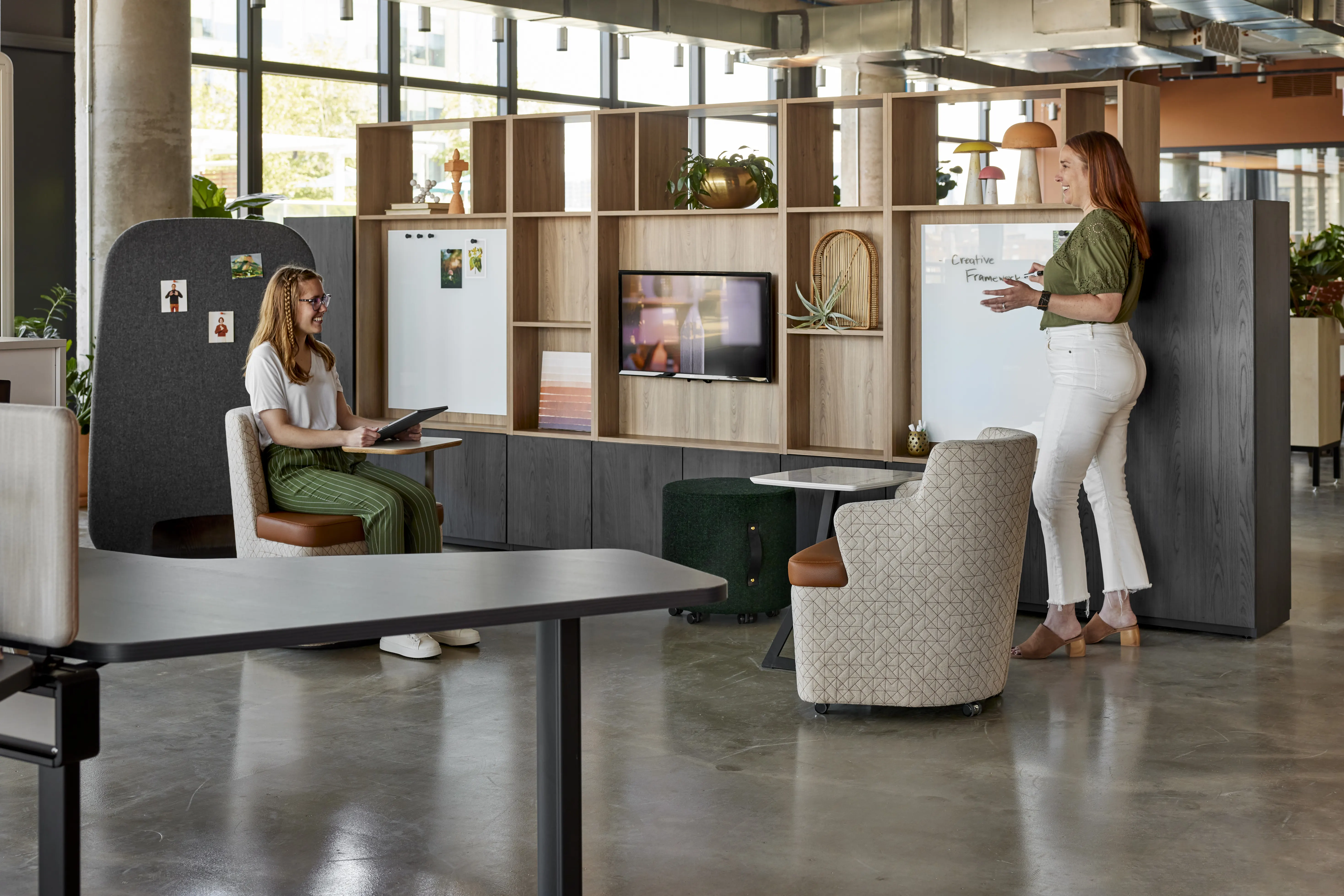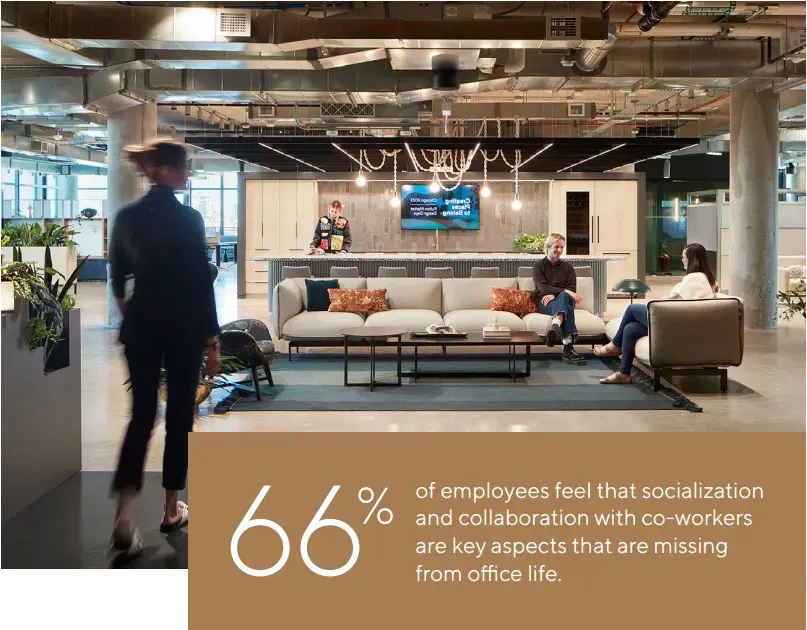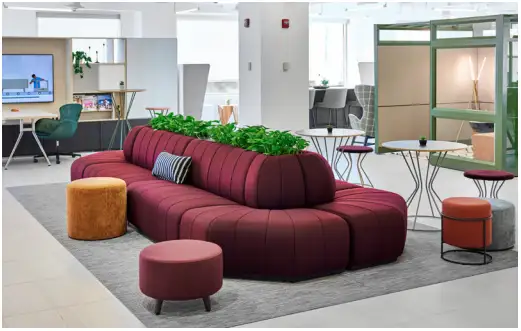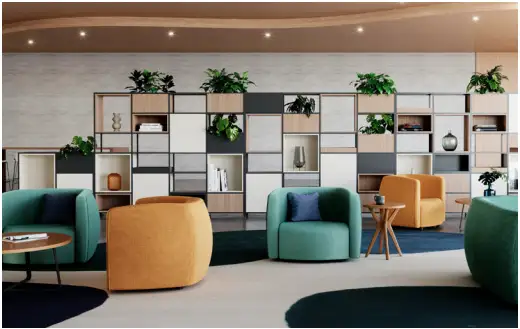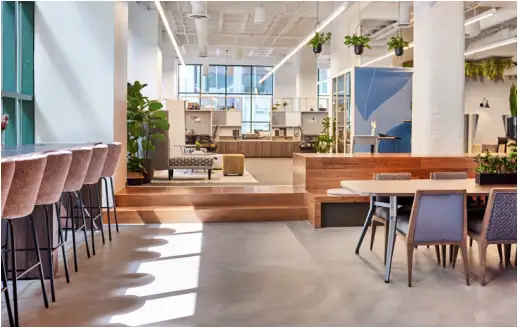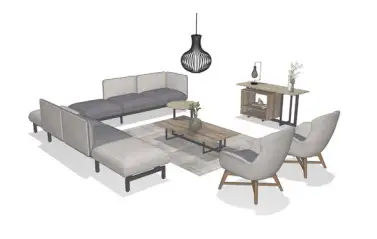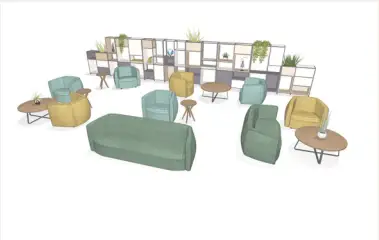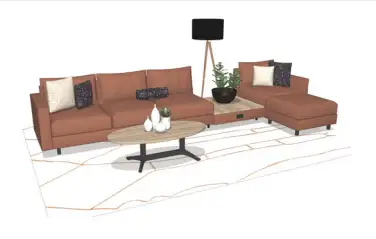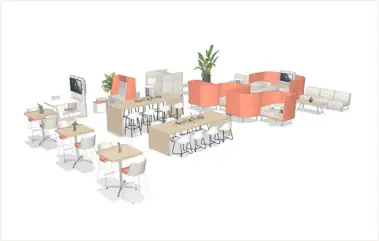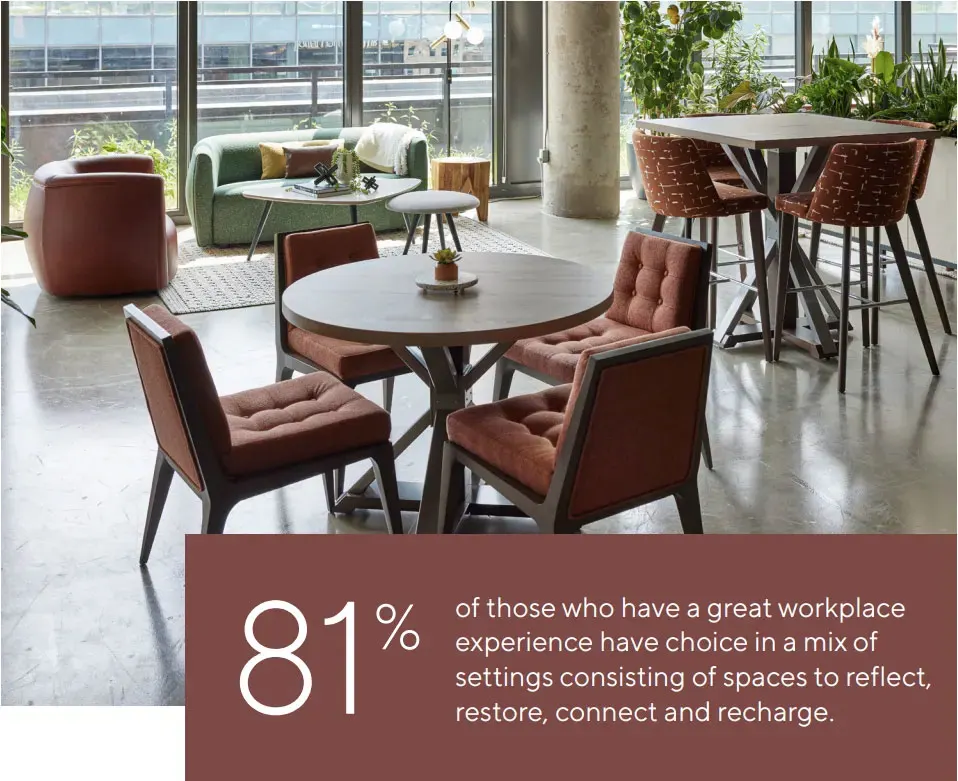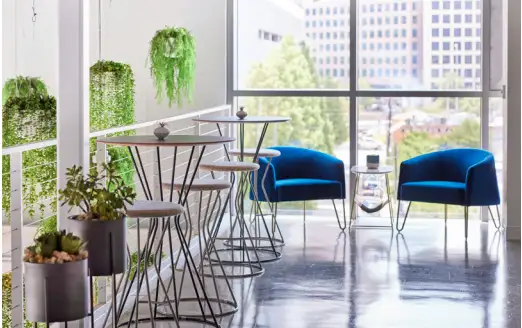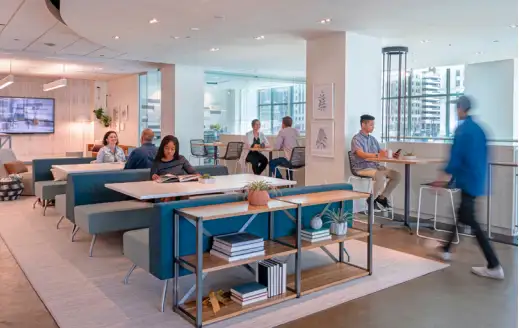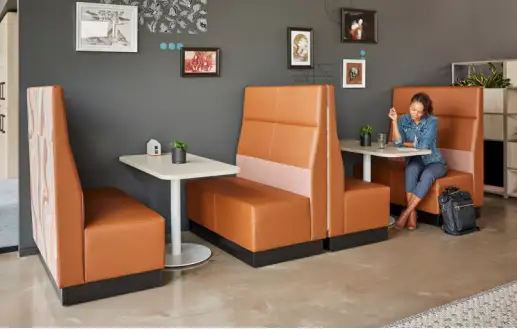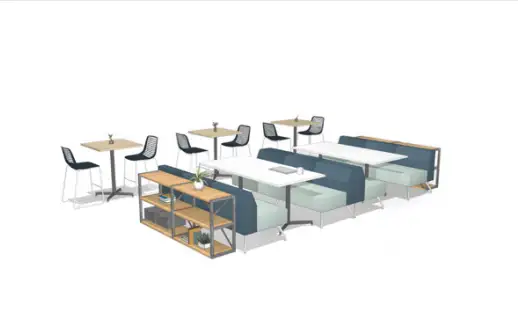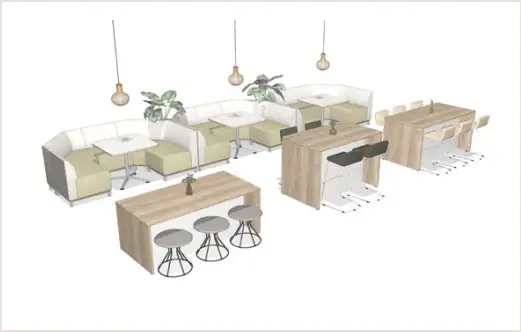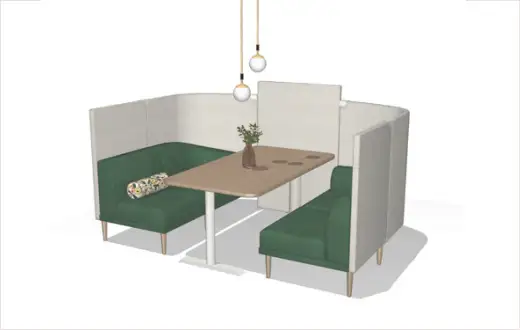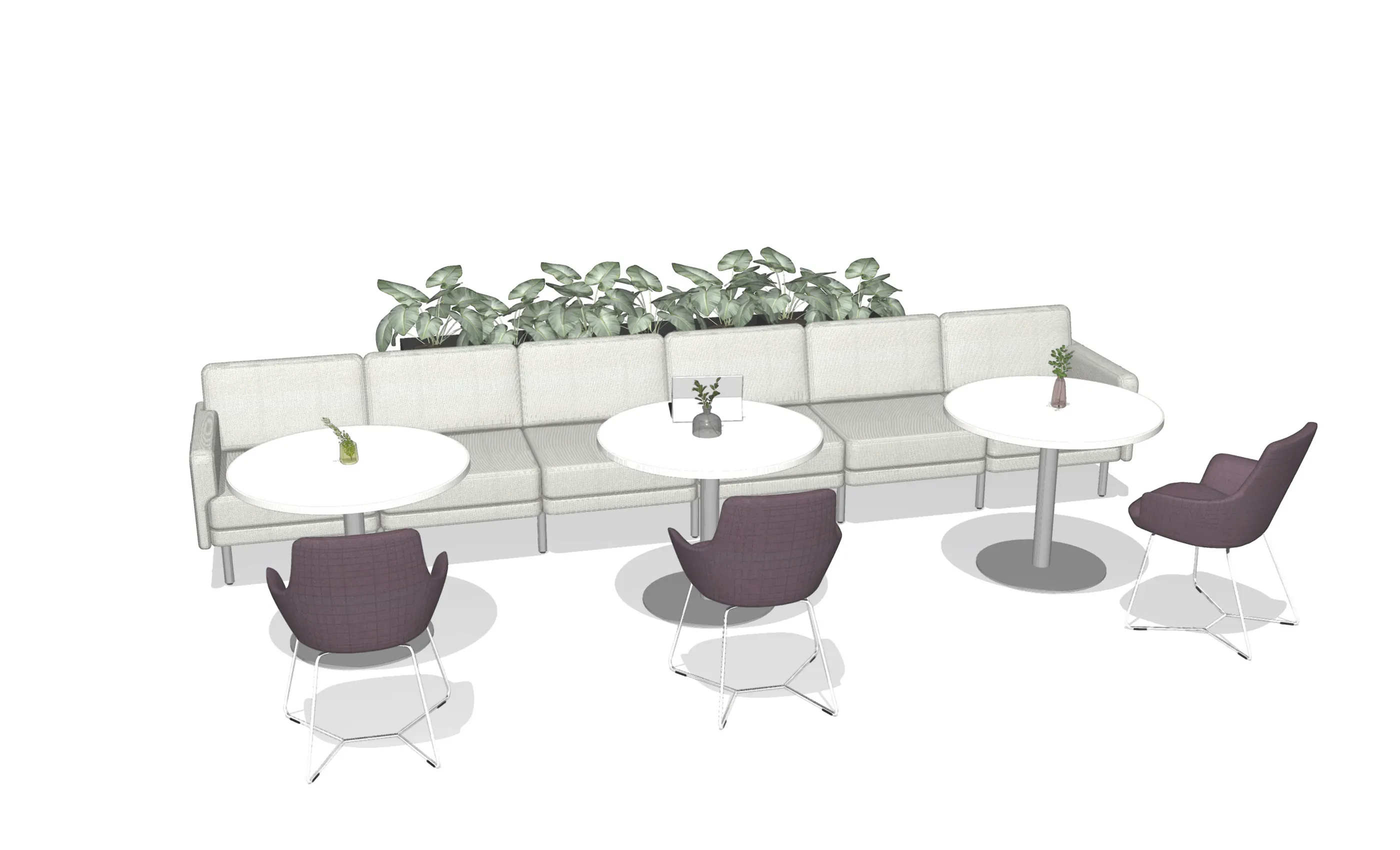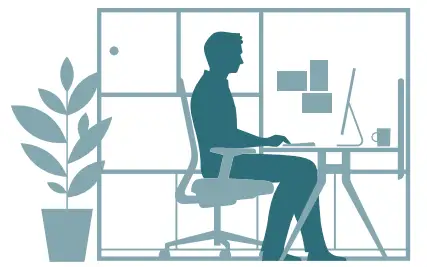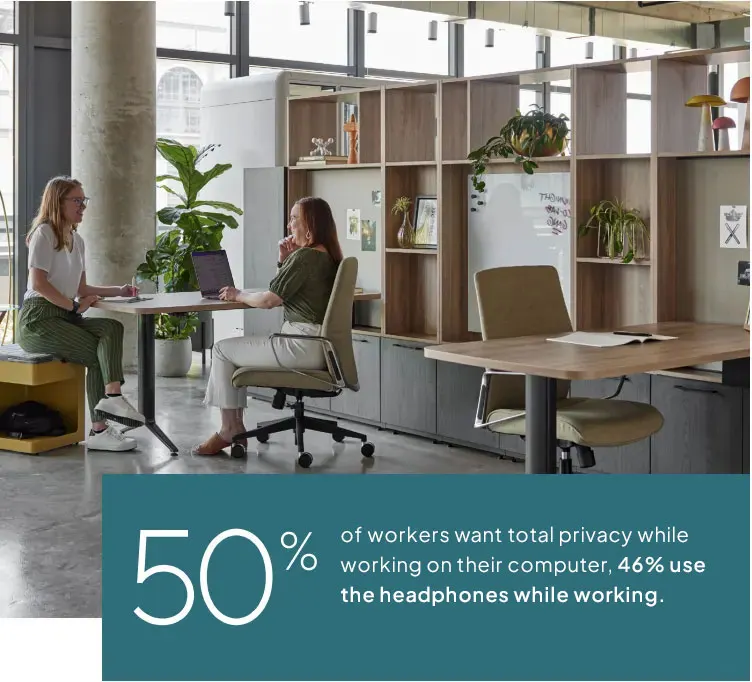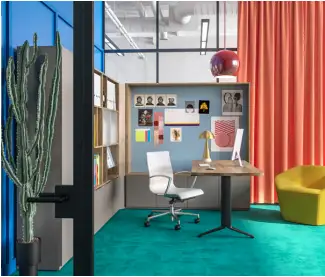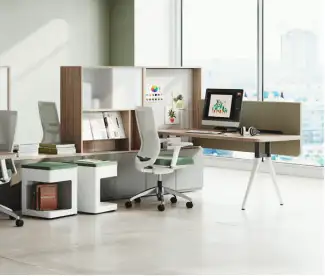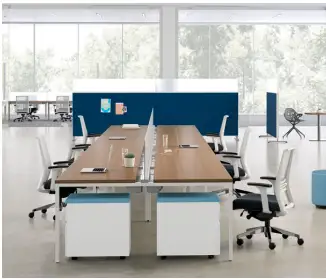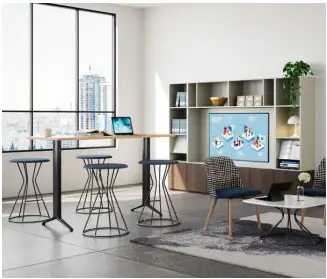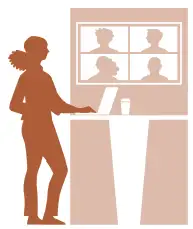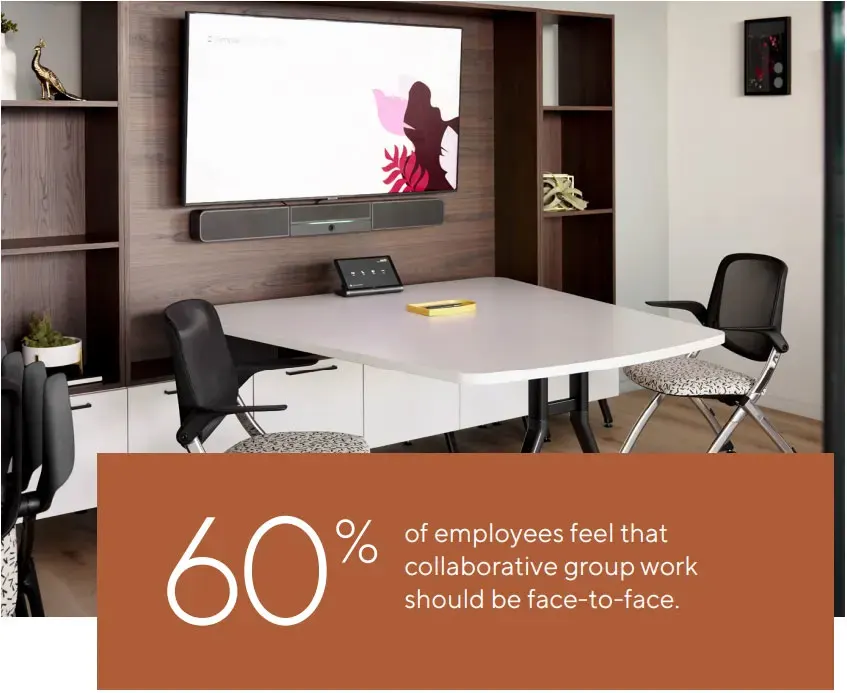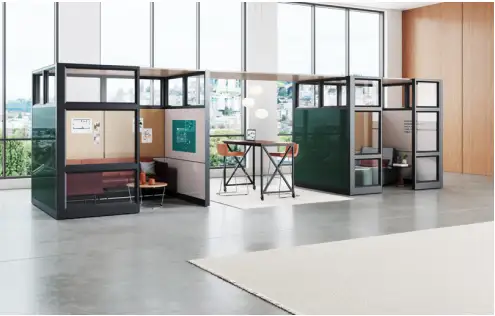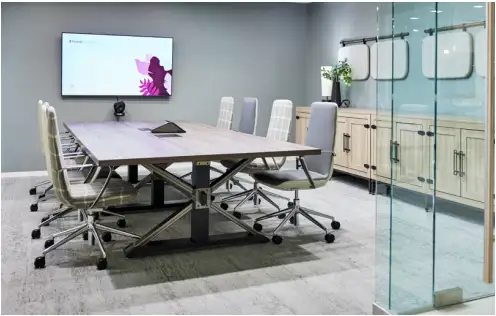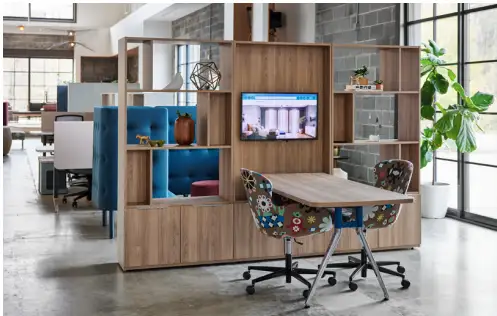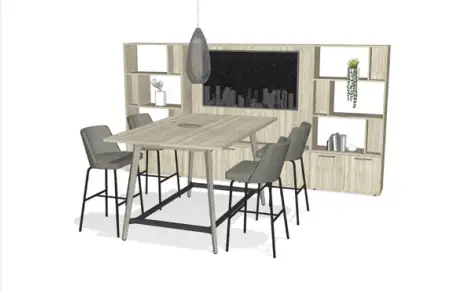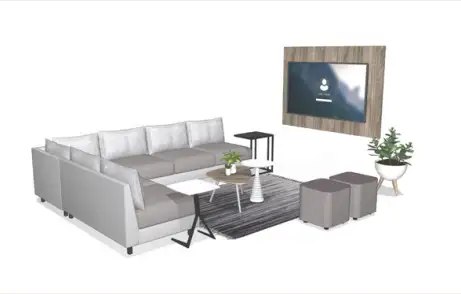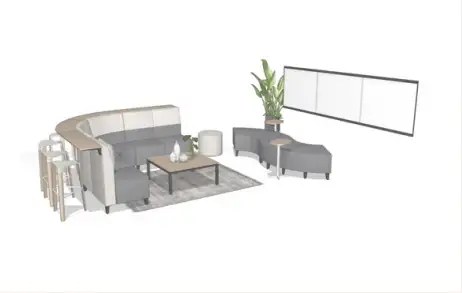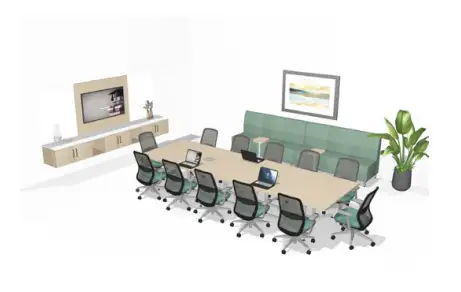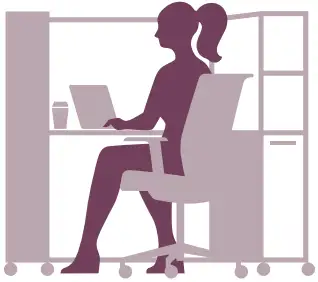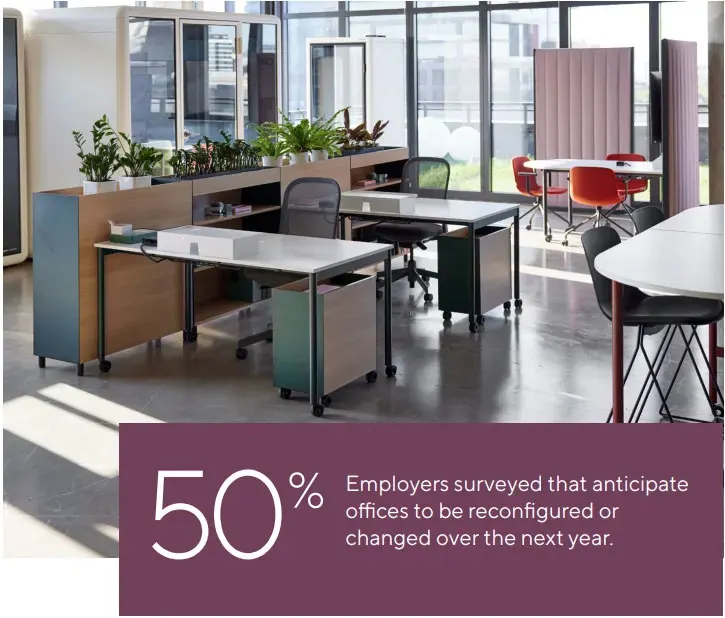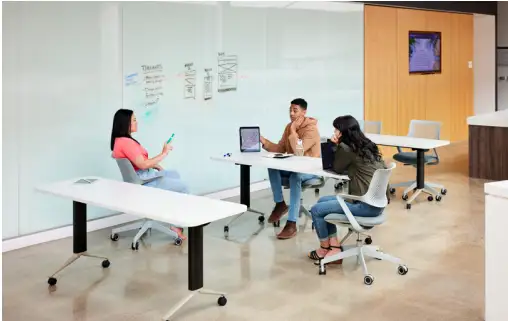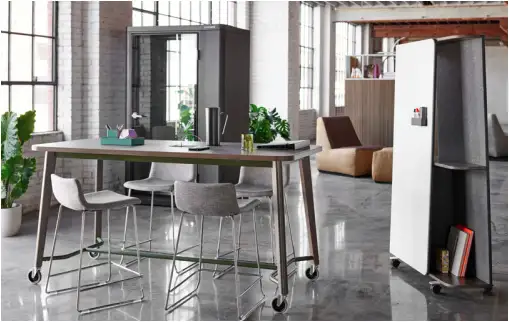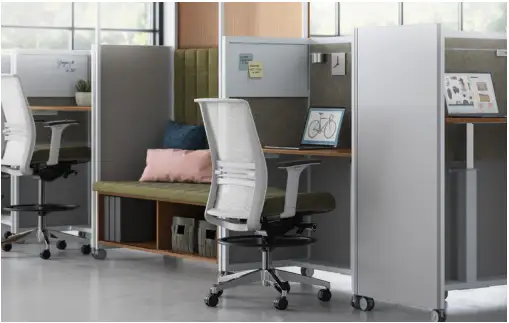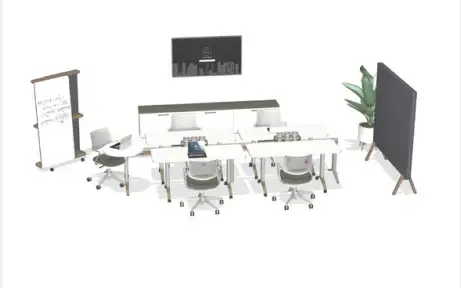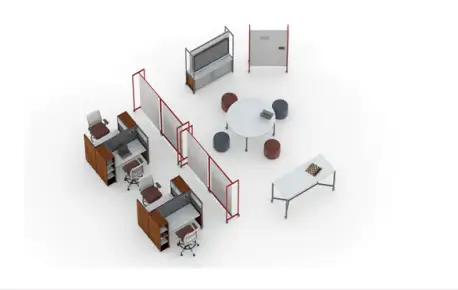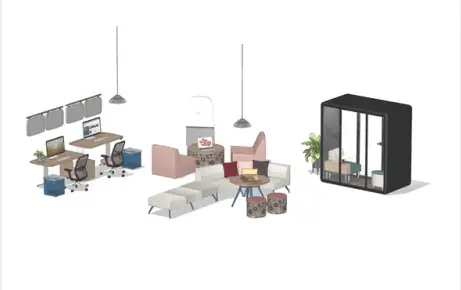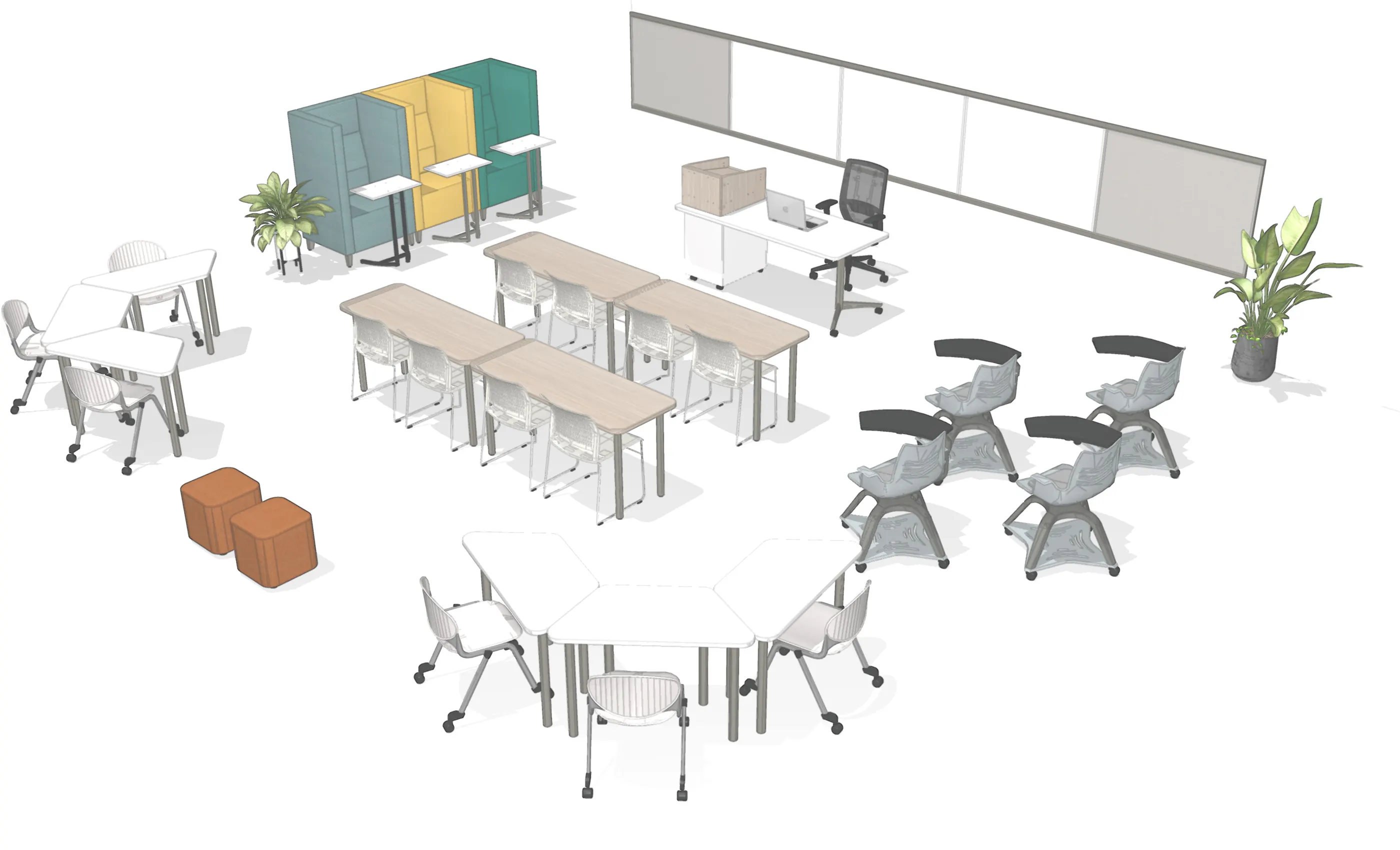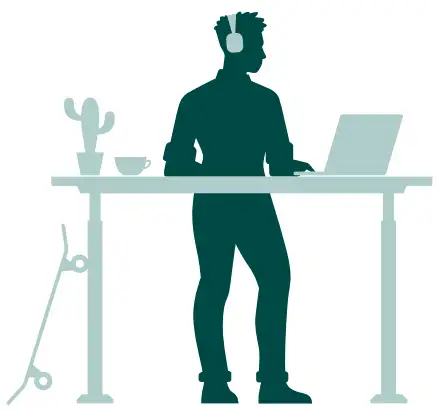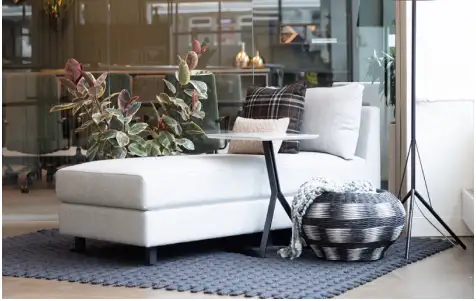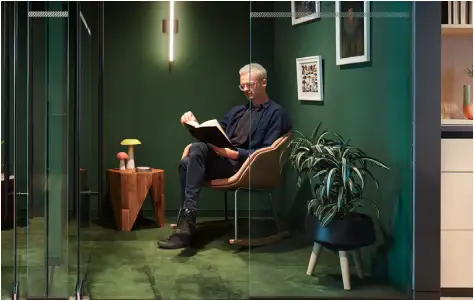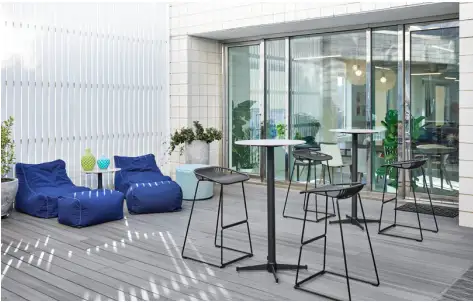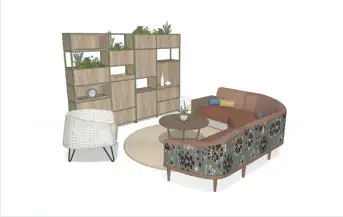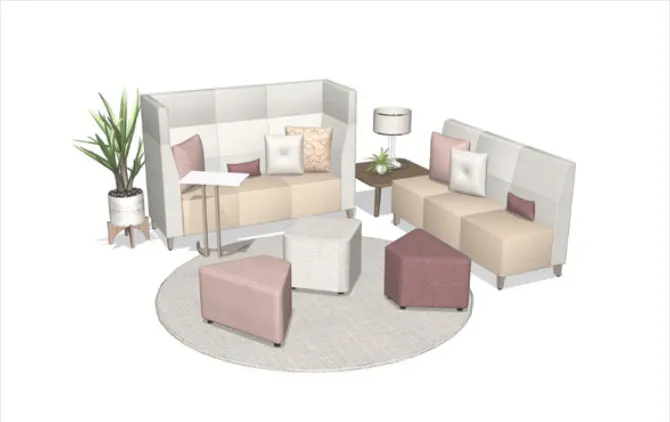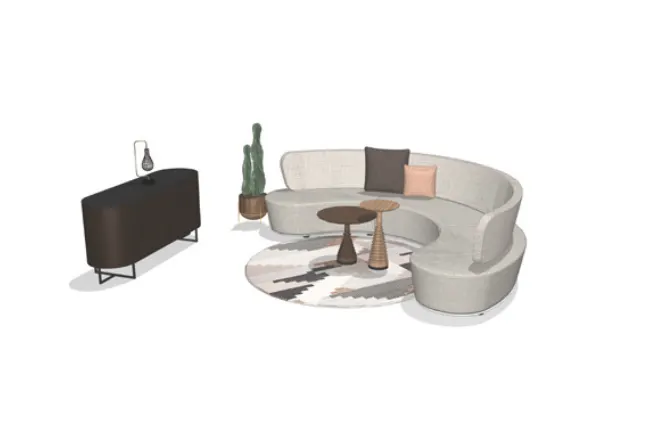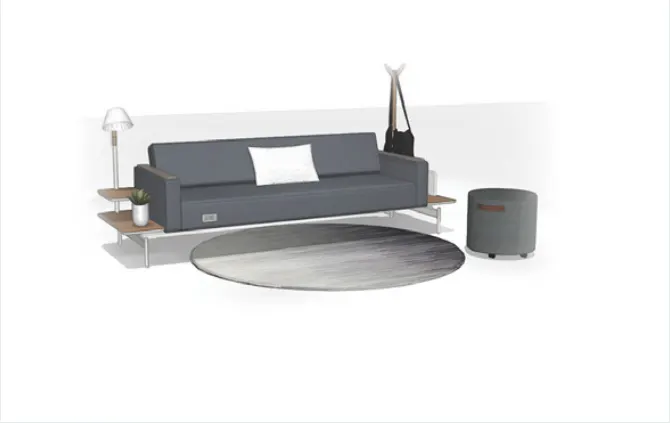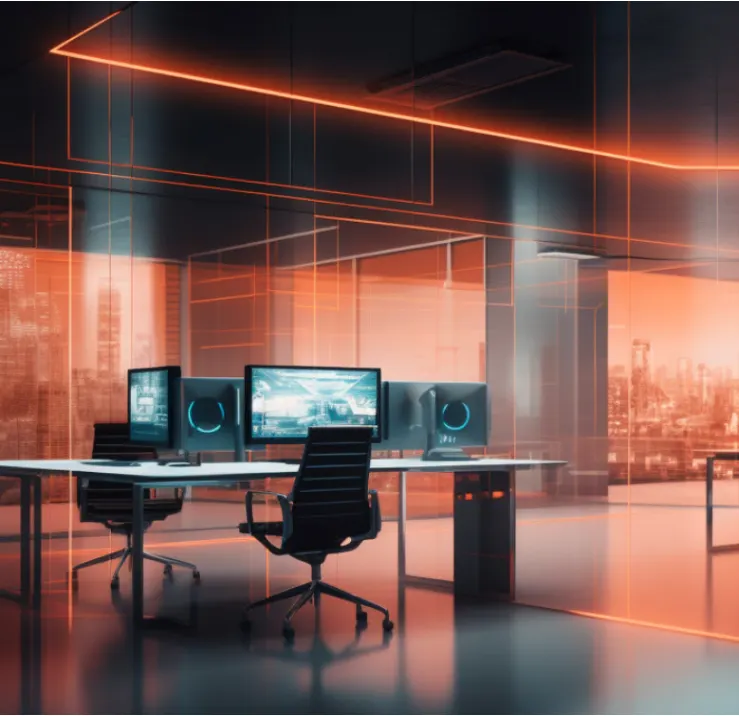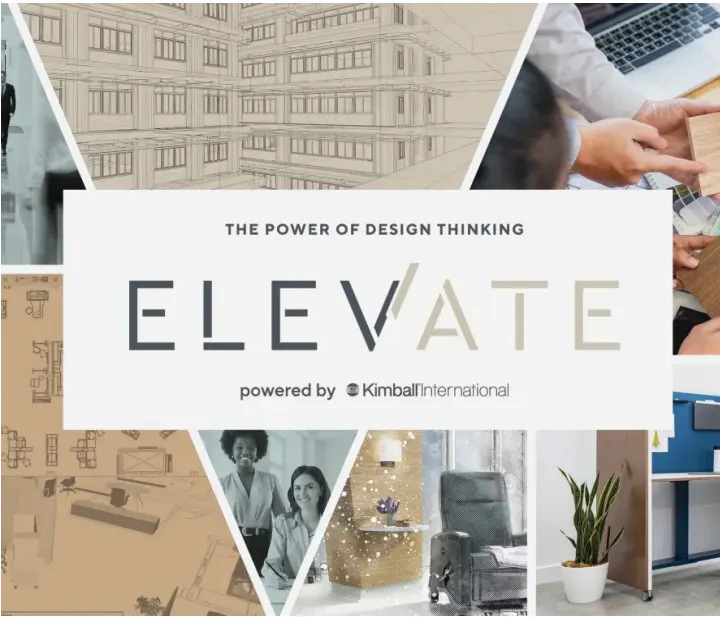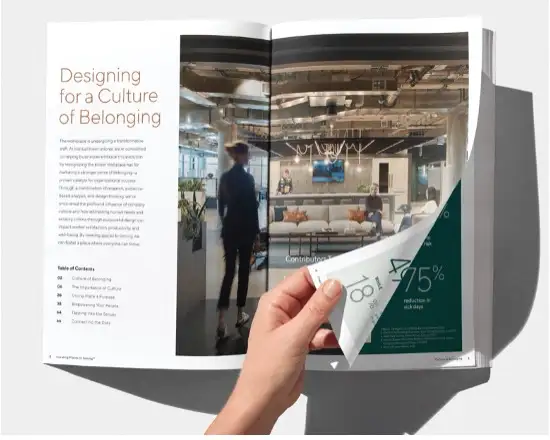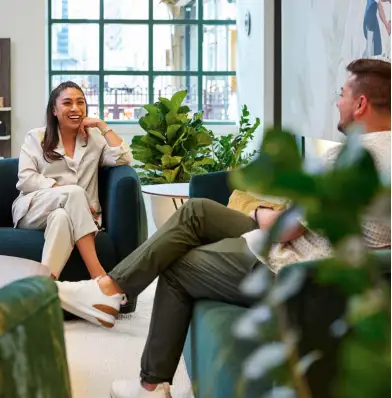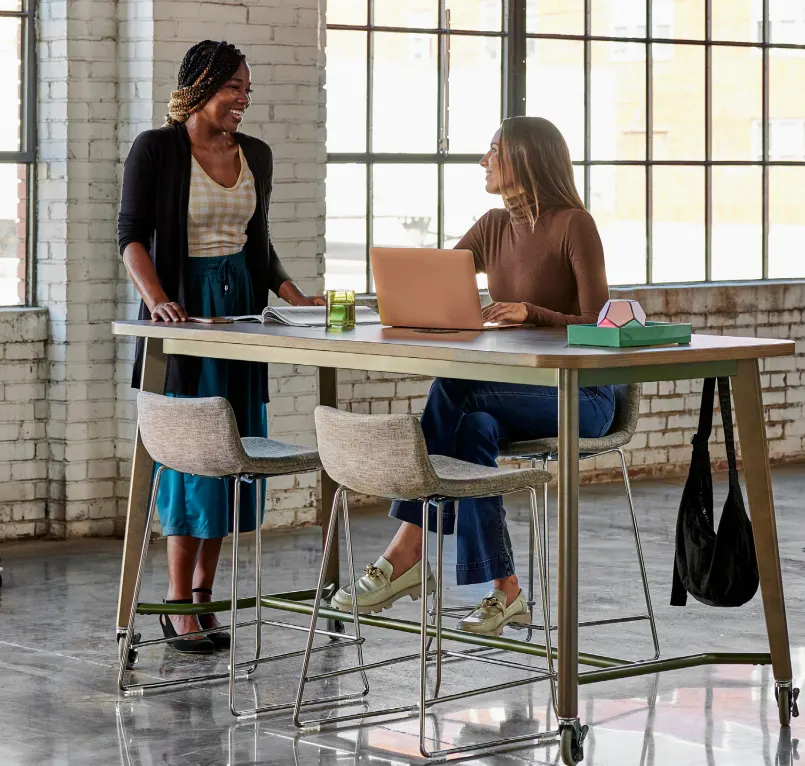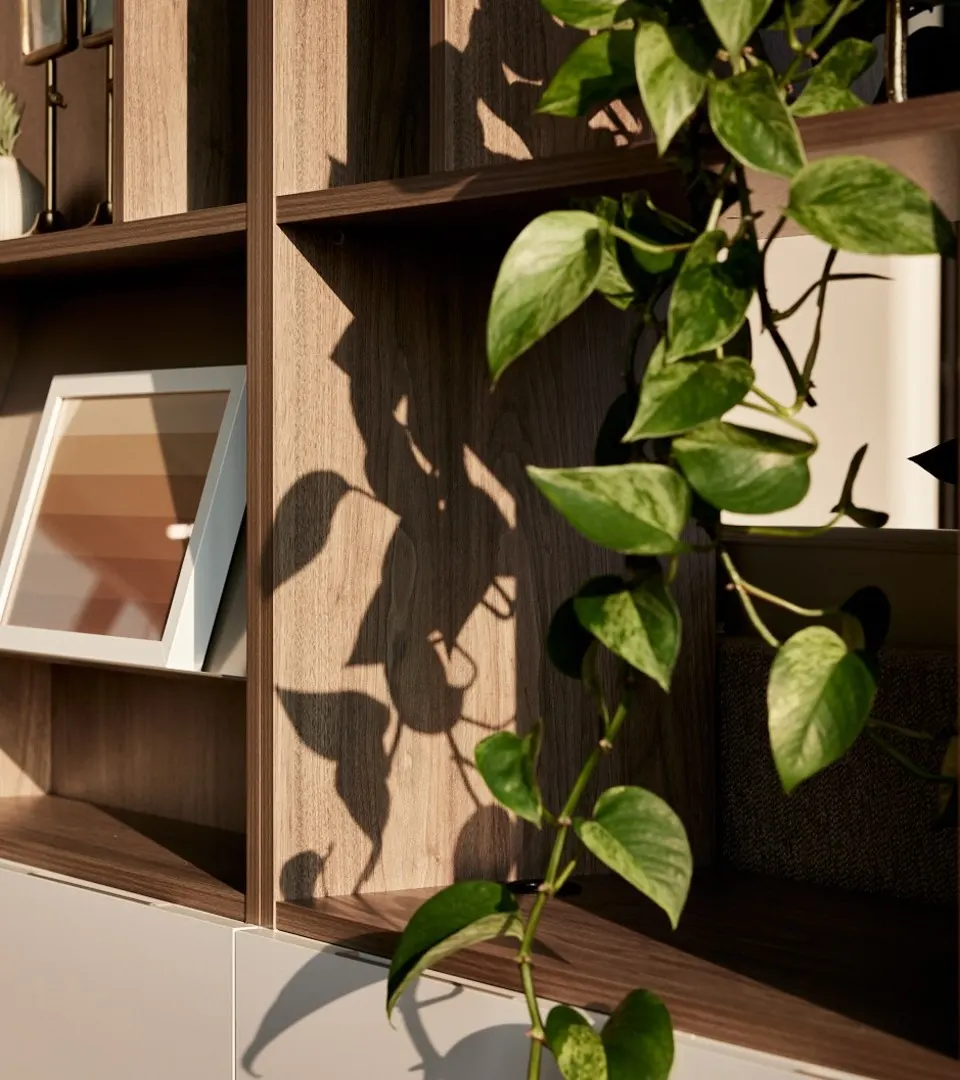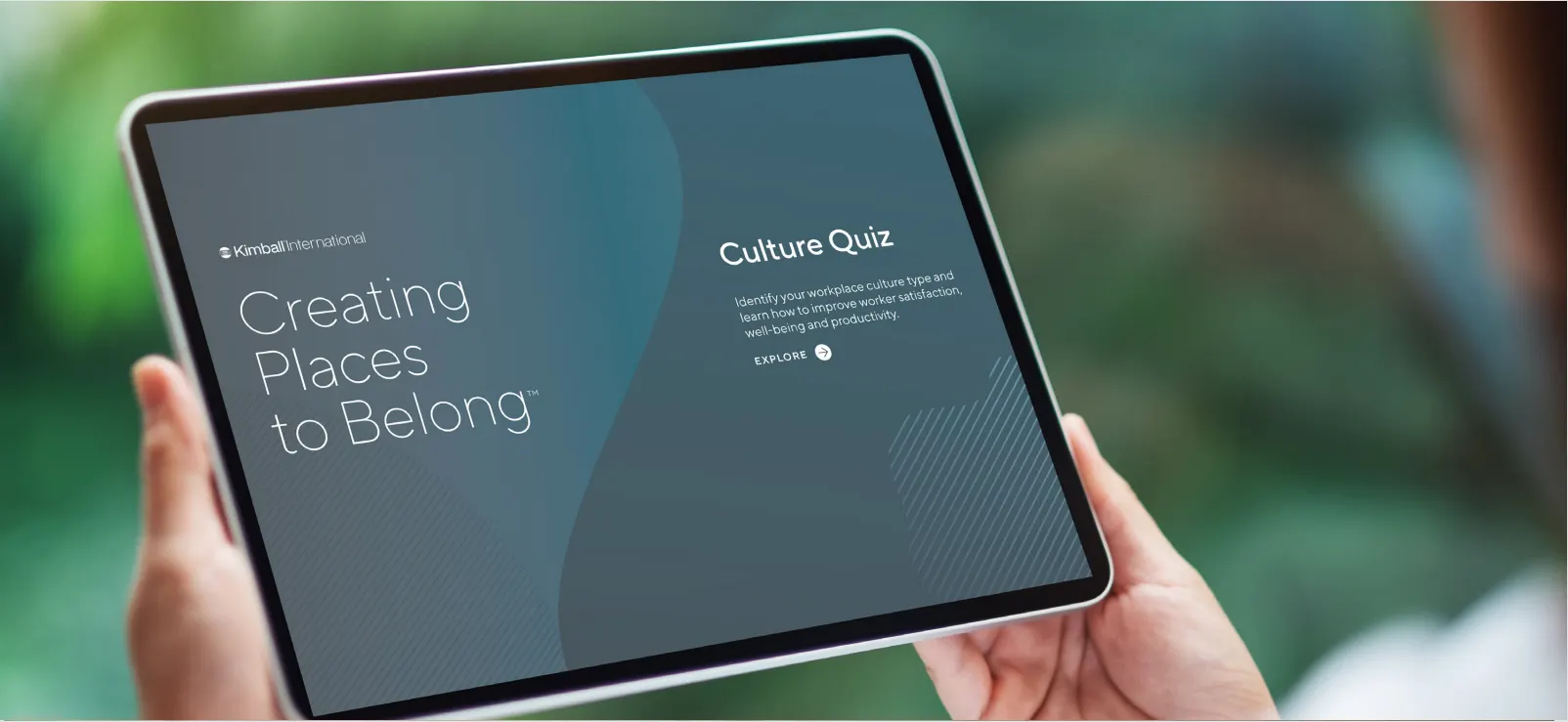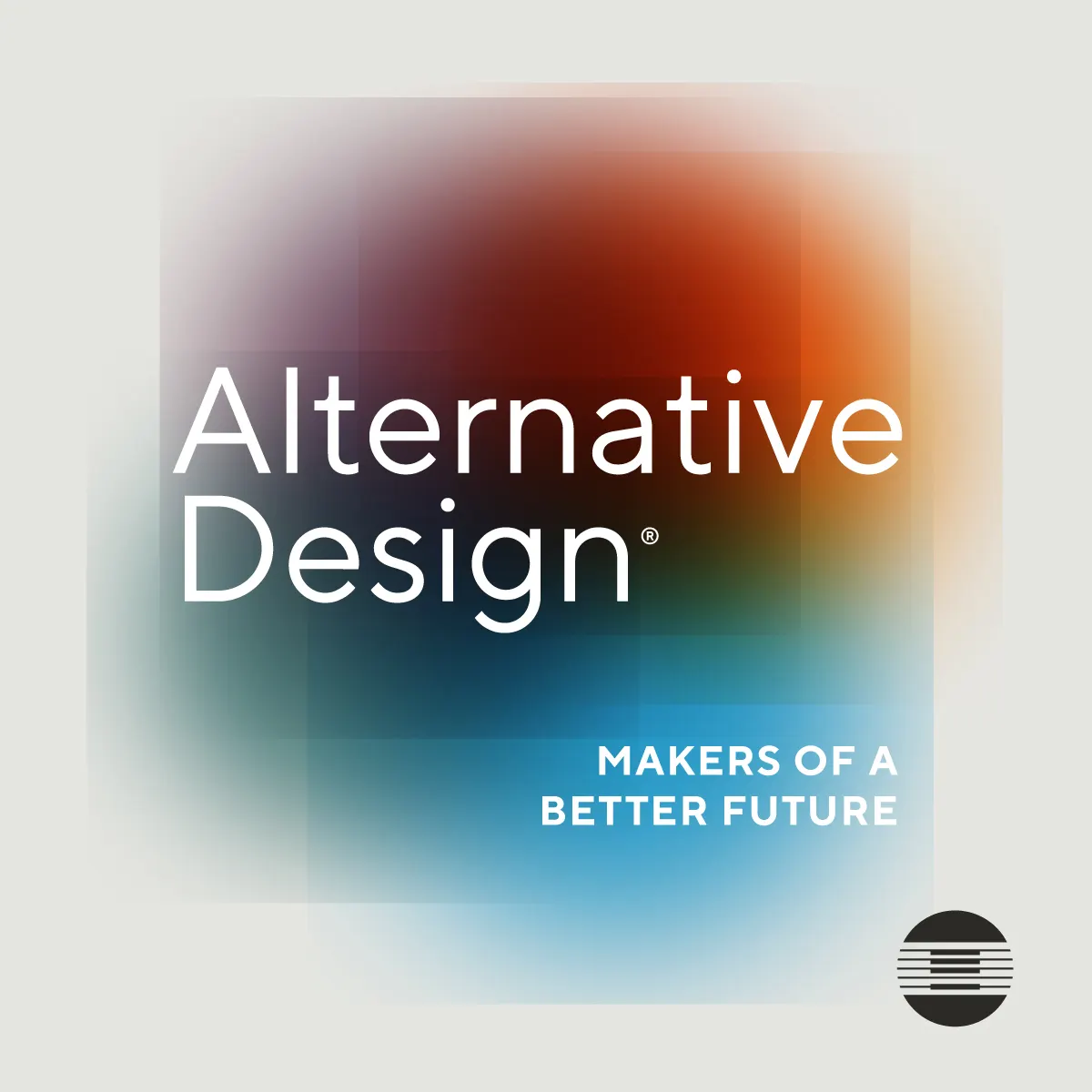Empowering Your People
Having a choice in where to work is unequivocally associated with higher performance, enhanced creativity, and meaningful engagement. This level of flexibility is the driver that boosts worker happiness and organizational productivity. Through our research, we identified 6 Space Types to support workers' evolving workstyles and their need for belonging. By infusing these space types within a facility, organizations can offer choice and nurture feelings of connection, community, and comfort, empowering everyone to be their best.
Explore the 6 Space Types
SPACES THAT FOSTER BELONGING
The Hub
Often described as the heartbeat of the office, the Hub supports socialization and connectivity. These spaces are often designed with comfortable, casual, and eclectic pieces.
PLANNING CONSIDERATIONS
Versatile
Recognizing the fluid nature of work, it's essential to provide diverse settings that cater to various tasks, supporting connection, collaboration, focus, and moments of introspection.
Adaptable
Moveable furnishings add a layer to the dynamic of choice, allowing people the flexibility to adapt their surroundings to the specific task at hand.
Central
Centralized settings that support social interactions provide a space where people can gather, focus, and collaborate to build a sense of community.
FEATURED IDEA STARTERS
SPACES THAT FOSTER BELONGING
Culture Café
These spaces play an important part in defining an organization’s brand and culture, as well as creating a positive customer experience. They offer a variety of seating options for meeting, catching up, and grabbing a bite to eat.
PLANNING CONSIDERATIONS
Reflect
Mental health and self-care have never been more important. Taking a brief break from the demands and pressures of the workday for self-reflection has not only proven to rejuvenate but also to spark creativity.
Connect
Work cafés present an excellent opportunity to create a more casual atmosphere, allowing for informal and organic connections between teams, roles, and generations.
Recharge
Studies show that the number one office perk is access to natural light. Designing a workplace café with access to natural views boosts morale, improves well-being, and allows workers to recharge.
FEATURED IDEA STARTERS
SPACES THAT FOSTER BELONGING
Work Your Way
These workspaces support users throughout their workday. From spaces with visual and acoustical privacy to informal meeting areas, these destinations accommodate planned and impromptu interactions.
PLANNING CONSIDERATIONS
Private
Enclosed settings that support visual and acoustical privacy to elevate individual focus.
Dedicated
Dedicated workstations support a wide range of sensory needs, addressing factors such as privacy, noise, lighting, ergonomic seating for comfort, and storage for clutter reduction and cleanliness.
Touchdown
Touchdown stations can be utilized in rotation by multiple employees to help balance hybrid schedules and support individual focus.
Shared
Shared workspaces foster collaboration, promote flexibility, and cultivate a dynamic environment that encourages teamwork and supports a culture of innovation.
FEATURED IDEA STARTERS
SPACES THAT FOSTER BELONGING
The Meet-Up
From privacy pods for one-on-one meetings to casual lounge settings or tech-savvy boardrooms, these areas support collaboration and problem-solving.
PLANNING CONSIDERATIONS
Impromptu Connections
Flexible small group settings provide visual and acoustical privacy, accommodate various postures, and can be designed to cater to hyposensitivity needs by infusing vibrant colors, textures, and providing ample space for movement and fidgeting.
Planned Connections
Dedicated meeting spaces provide a more controlled environment to focus. These settings can be designed for hypersensitivity needs, and benefit from a calm, neutral palette and acoustic wall panels.
Virtual Connections
These tech-savvy spaces support coming together, in-person or virtually.
FEATURED IDEA STARTERS
SPACES THAT FOSTER BELONGING
Room on the Move
Versatile and movable furniture solutions allow these spaces to easily transition. Promote learning, training, mentoring, and hands-on activities by offering these flexible spaces.
PLANNING CONSIDERATIONS
Project Room
These settings benefit from the flexible furniture solutions that give users the opportunity to morph and transform the space to support different functions throughout the course of the day.
Community Space
Community spaces should offer a variety of furniture layouts to support focus, meetings, social interactions, and breaks. Comfort, natural views, and access to power are vital for these dynamic environments.
Focus Space
These versatile spaces feature flexible, ergonomic furniture and provide both visual and acoustical privacy to support individual focus.
FEATURED IDEA STARTERS
SPACES THAT FOSTER BELONGING
Well + Good
Promote employee well-being and safety with spaces and programs dedicated to overall health. These areas can include yoga and meditation spaces or more personal needs like a mother’s room.
PLANNING CONSIDERATIONS
Rest Space
Isolated settings that invite relaxation can restore alertness, enhance performance, and reduce mistakes in the workplace.
Reflection Room
Taking a brief respite from the demands and pressures of the workday not only refreshes the employee but also, through self-reflection, has been shown to ignite productivity and creativity.
Outdoor Area
Since the pandemic, there has been a heightened awareness of the impact of air quality and outdoor spaces on our overall well-being. Incorporating outdoor workspaces as an extension of the office has emerged as a best practice.
FEATURED IDEA STARTERS
